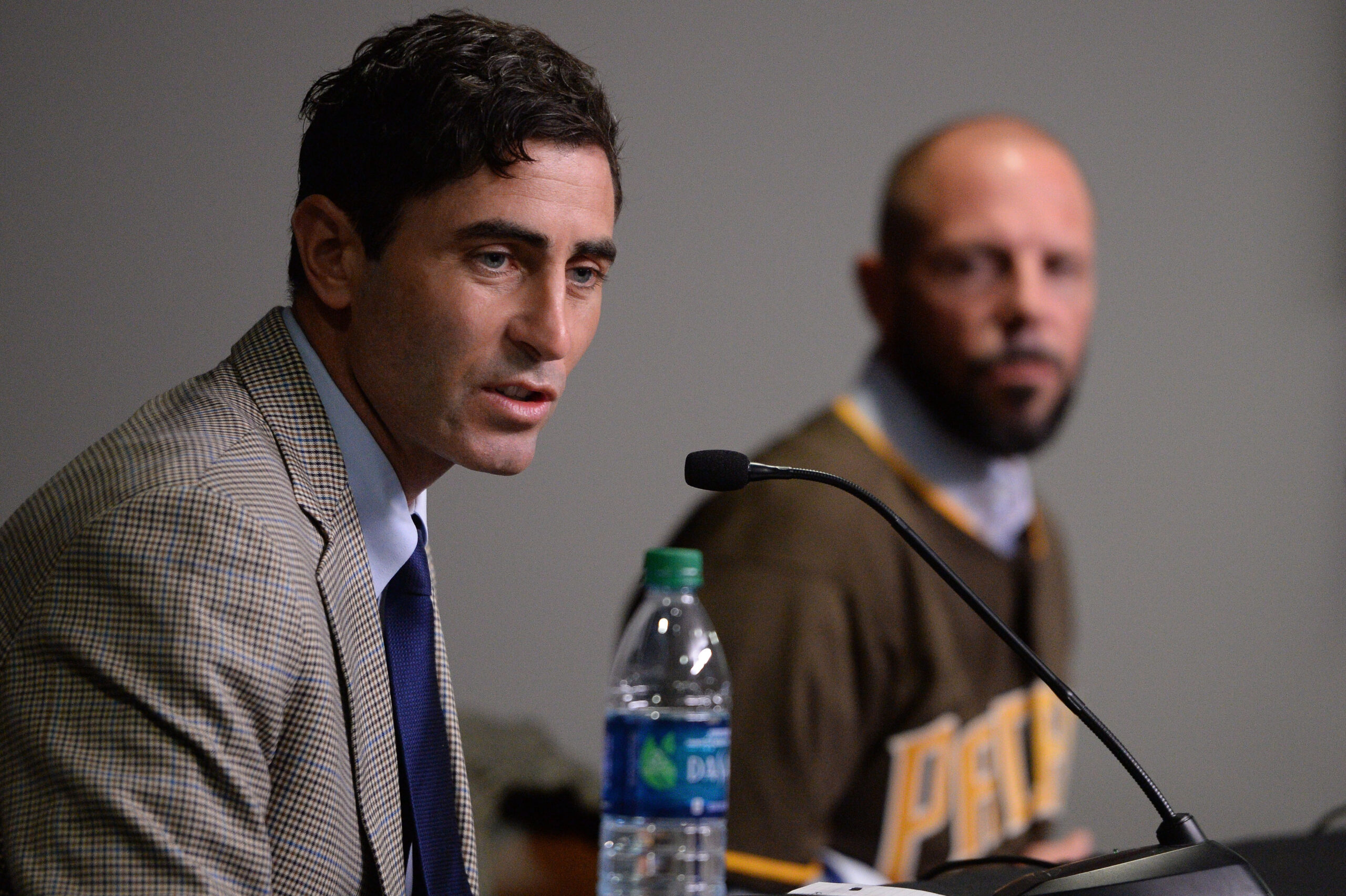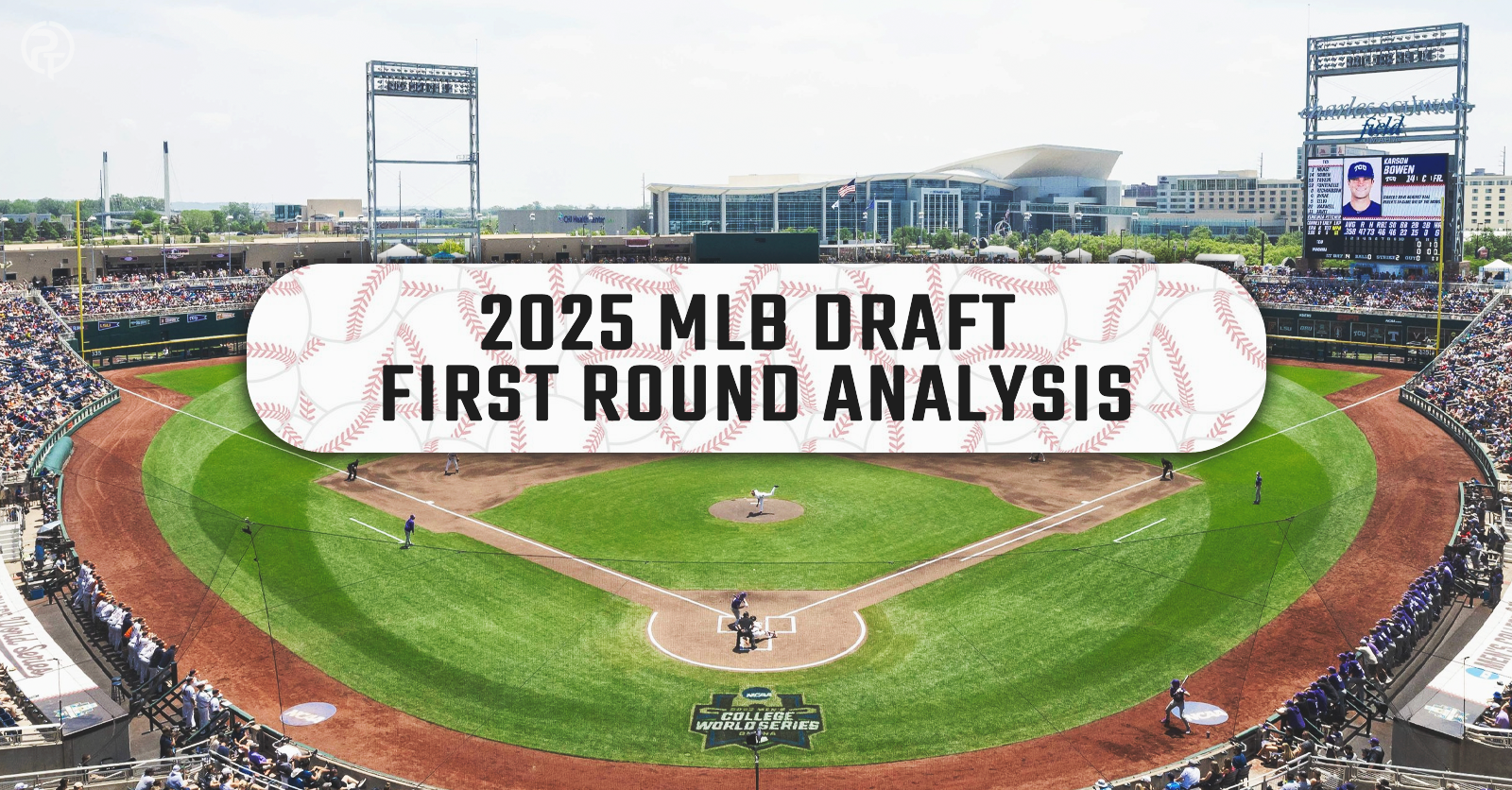I have long been intrigued by the idea of the Padres going “Whiteyball” from the Cardinals’ winning seasons in the early-to-mid ’80s.
The Cardinals and Whitey Herzog implemented a team that was unlike any other in baseball by playing to their strengths and tried to exploit other teams’ weaknesses. They put an emphasis on good pitching, fundamentally sound defense — getting on base, hit-and-run’s and stealing mercilessly.
The home run was punted for speed and on-base percentage, in addition to some of the other aforementioned attributes.
During those seasons, the Cardinals were at or near the top of many team statistical categories: Stolen bases, runs, and on-base percentage –– a trio the Padres are emphasizing this offseason.
In contrast to other clubs and the industry’s traditional style for the long-ball, the Cardinals were last in home runs.
Sure, they had Jack Clark reach 22 homers in 1985, and Andy Van Slyke with 26 from 1985-86, but zero mashers in the lineup; just fundamentally sound players who get on base, play small-ball and pressured the opposition with their unparalleled speed.
A look at the players’ stats:
In 1982, Willie McGee slashed .296/.318/.391 with a .709 OPS. He had 12 doubles, eight triples, four home runs, 56 runs batted in, with 24 stolen bases (caught 12 times).
In 1985, McGee slashed .353/.384/.503 with a .887 OPS, (147 OPS+), 216 hits, 26 doubles, 18 triples, 10 home runs, 56 steals, and 308 total bases.
In 1985, Vince Coleman slashed .267/.320/.335 with a .655 OPS (84 OPS+) but amassed 213 total bases, including 110 steals (caught 25 times).
In 1982, Ozzie Smith slashed .248/.339/.314 with a .653 OPS, that resulted in 121 hits, 24 doubles, one triple, one homer, 25 stolen bases (only caught five times).
Smith broke out in 1985, slashing .276/.355/.361 with a .716 OPS, resulting in 148 hits, 22 doubles, three triples, six home runs, with 31 SB (only 8 CS).
Lonnie Smith was another key contributor in 1982, slashing .307/.381/.434. with an .815 OPS, resulting in 182 hits, 35 doubles, eight triples, eight homers, with 68 steals (26 caught-stealing), with 64 walks to just 74 strikeouts.
Padres shake things up.
The Padres’ emphasis has been drafting and acquiring players that could fit that philosophy and check many of those boxes.
The Friars traded Hunter Renfroe, Luis Urias, Franmil Reyes; all of whom shared various levels of promise, but also deficiencies that clash with that narrative.
Renfroe and Reyes can destroy baseballs but are redundant in terms of deficiencies (namely OBP), magnified the current offensive woes and need to get more balanced.
In both trades you saw similarities in players they’re trying to emphasize: speedy, contact orientated players that can both get on base, provide pop and play defense.
When the industry norm is record-breaking K-rate, homerun emphasis, with a secondary priority on speed, defense and balls in play — you can zig when the industry zags, providing strengths that other teams don’t have in an attempt at an edge.
Drawing Comparisons
I’m not trying to draw a direct parallel to the Padres position now and the Cardinals in the ’80s, but I do see some organizational emphasis and similarities.
The Padres needed to get more left-handed, on-base oriented with more contact and players who thrive in clutch situations with more speed.
The Padres continued their consolidation by dealing for outfield prospect Taylor Trammell. Trammell was brought over in the Franmil Reyes (three-team) trade from the Reds with the Indians. Tommy Pham was acquired from the Rays, along with two-way player infielder and pitcher, Jake Cronenworth.
While on paper Urias seemed to be the type of player the Padres are looking for; there were many things to also consider: are you relying solely on his hit tool, as his skill set is limited in terms of speed and power going forward (especially stolen bases)?
Moreover, there was some concern Urias’ leg-kick would be counterproductive for his contact-oriented strong suit, as he struggled mightily with fastballs; his well-hit average on heaters was about 50 percent below the MLB average.
The Padres landed outfielder Trent Grisham, and a productive starter in Zach Davies, in exchange for Urias and Eric Lauer.
The Padres dealt from strength and used Urias’ value to facilitate a trade in which two players in which they both liked better, both short and long-term.
Like Trammell and Pham, Grisham can get on base, steal bags with a far lower K-rate than Franmil and Renfroe, and is projected to have a higher WAR than Urias; as he’s more polished.
Grisham was once a highly regarded prospect, taken 15th overall in the 2015 Draft. He’s also still just 23 years old and was leading off for the Brewers down the stretch for their playoff push.
A new type of target — sprint speed
I find it interesting and possibly telling, the players the Padres have been linked to over the past few years.
Below I compiled a list of players with either rumored or reported interest, acquired players, or players they’re still trying to develop.
One of the similarities appears to be sprint speed. However, many also strikeout much less with more speed than most, or have other attribute tradeoffs that make up for their other deficiencies.
Twenty-seven feet per second is average sprint speed, according to Baseball Savant.
The Padres love Franchy Cordero’s ceiling, as he is a Statcast gem with elite exit velocity and a sprint speed at 29.2 (2018).
Trading for and developing Fernando Tatis Jr. and his jaw-dropping athleticism, baseball IQ, and elite sprint speeds at 29.3.
The Padres are still hopeful they can continue to develop Manuel Margot as he is in the upper echelon at 29 feet per second.
A list of players the Padres have shown interest in over the past few years:
Starling Marte: he hits for average, doesn’t strike out much (94 strikeouts in 539 at-bats, a 16 percent K-rate), and steals bases with his 29.0 sprint speed.
J.T. Realmuto: (’18) 28.7, 19.6 K-rate with a .340 OBP.
Christian Yelich: (’17) 28.7, 19.6 K-rate, and a .369 OBP.
Whit Merrifield: 28.6, 17.1 K-rate, .348 OBP.
Javier Baez: 28.6 sprint speed.
Austin Meadows: He sports a .369 OBP to go along with a 28.1 sprint speed.
Miguel Andujar: 28.1 sprint speed, and hit .297/.328/.527 with a .855 OPS without striking out 100 times (97) in 606 plate appearances in 2018.
Willson Contreras has good speed at 27.8, gets on base — as he garnered .355 OBP last year and an impressive 24 home runs in only 360 at-bats.
Mookie Betts is a superstar and the Padres are currently in dialogue with Boston regarding a potential trade — and he also possesses strong sprint speed at 27.9.
Mitch Haniger 27.8 (’18)
Jean Segura 27.9
David Bote 27.6
Francisco Lindor: 27.5
All of these players have some of those characteristics in one way or another.
Some of the Friars’ acquired players with comparable traits:
Trent Grisham is near-elite at 29.1 and also gets on base.
Tommy Pham’s 28.7, which ranked 3rd fastest on the Rays last year. Moreover, he has the eighth-best stolen base percentage in all of MLB last year.
Taylor Trammell: (NA)
Abraham Almonte: 28.5.
Fransisco Mejia has slightly above-average speed at 27.2, also average K-rates that could get better.
Jurickson Profar is slightly below average at 26.7, but he also is only at a 14.5 percent strikeout rate. The MLB average was 23 percent.
The Padres claiming Greg Garcia and his 27.6 sprint speed with a .364 OBP, paired with a 22.3 K-rate has assisted his success.
Players the friars have dealt:
Selling high on Renfroe 27.1, but also with a sub-.300 OBP, and a 31.2 percent K-rate.
Urias was average at 27.2, but a middle infielder with limited power and a non-threat to steal bases.
Franmil wasn’t bad considering his size at 26.6, but a designated hitter that will only get slower as he ages, with a 28.5 percent K-rate.
Prospect fits on the way
Prospects that could fit the Whiteyball-like philosophy:
Taylor Trammell has 65 speed on the 20-80 scale, but some believe he will be a 20-20 player with his amazing makeup.
Shortstop C.J. Abrams is one of the fastest prospects in baseball that possesses 80-grade speed. Some believe that CF could be his best position to utilize his game-changing speed.
Edward Olivares has tools for days and is a 60-grade runner.
Hudson Head: 60
Ismael Mena: 70
Esteury Ruiz has a power/speed combo but strikes out too much with a low OBP. A 55 runner with the ability to steal bases at a very high percentage.
Jeisson Rosario: 55-grade speed, but with a .371 OBP, and a 16.3 percent walk-rate.
Tucapita Marcano is above average speed at a 55 grade, but he also has some of the best bat-to-ball skills in the minors. He only struck out eight percent of the time.
Xavier Edwards, who was traded with Renfoe for Pham is a 70-grade runner with elite contact skills, but also only had one home run in 503 professional at-bats.
The ideal lineup for this philosophy:
The more I think about the idea of playing a rarity in the game to a hypothetical advantage, the more I like it.
Dreaming on a team of speedsters that also possess pop, without striking out a ton and defense, could prove to be a game-changer.
2022 lineup?
1. C.J. Abrams CF
2. Taylor Trammell LF
3. Fernando Tatis Jr. SS
4. Manny Machado 3B
5. Eric Hosmer 1B
6. Fransisco Mejia or Luis Campusano C
7. Trent Grisham, Franchy, Oliveras or Hudson Head RF
8. Tucapita Marcano/Cronenworth 2B
The philosophy is intriguing to dream about in spacious Petco Park, especially considering the other NL West parks play big.
Padres’ new Manager Jayce Tingler has a reputation for being aggressive on the basepaths, a good combination of the new and old school; utilizing both analytics, matchups, and traditional intuition.
Prellerball?





